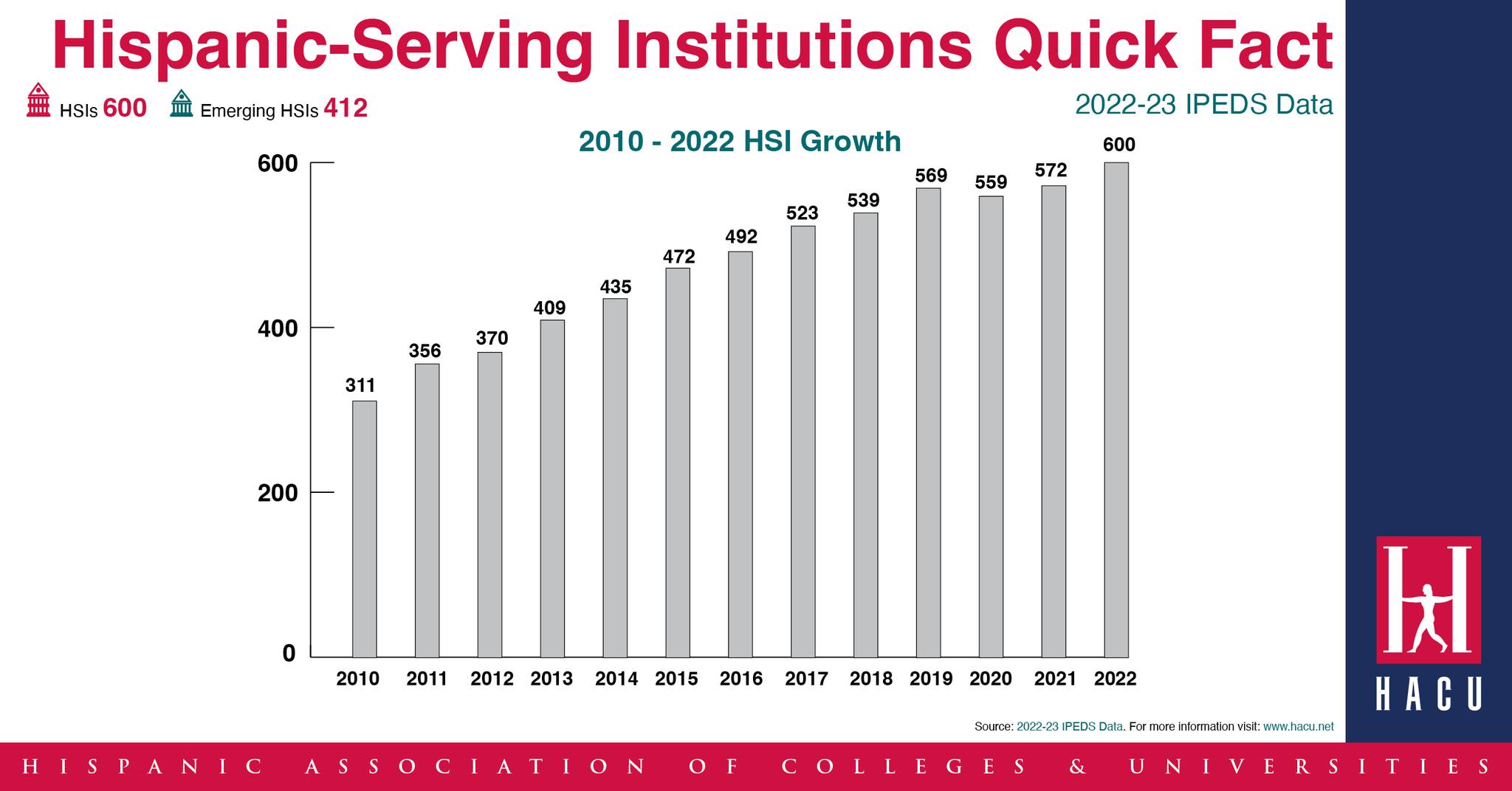3/20/2024

In 2022-23, there were 600 institutions that met the definition of an HSI compared to 572 in 2021-22. This increase of 28 institutions or 5% from the previous year, highlights the continued growth in Hispanic student enrollment at colleges and universities across the country.

“The rate that Hispanic-Serving Institutions continue to grow emphasizes their importance to the communities they serve,” said HACU President and CEO Antonio R. Flores. “HSIs are engines of upward mobility and are the backbone of educational opportunity for millions of students across the country.”
HSIs are defined as having 25% or more undergraduate Hispanic student full-time equivalent (FTE) enrollment. In 2022-23, HSIs enrolled 66.2% of all Hispanic undergraduates and 31.7% of all undergraduate students in nonprofit postsecondary education.
The number of Emerging HSIs—colleges approaching the 25% Hispanic student enrollment threshold, showed growth to be 412 in 2022-23, compared to 400 in 2021 or an increase of 3%.
Important facts about HSIs to note:
- HSIs enroll 5.2 million students and two-thirds of all Hispanic undergraduates.
- HSIs enroll 32.2% of Pell recipients.
- Of the top 10 colleges and universities ranked by the Social Mobility Index (SMI) in 2022, nine were HSIs.
- A majority of HSIs are in urban areas and are concentrated geographically, with 82% (489) of these institutions located in seven states and one territory: California (172), Florida (30), Illinois (34), New Jersey (23), New Mexico (24), New York (39), Texas (111) and Puerto Rico (56).
- California and Texas account for 47 percent of all HSIs.
- HSIs and Emerging HSIs are present in all but 8 states.
For more info, visit hacu.net
